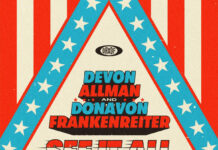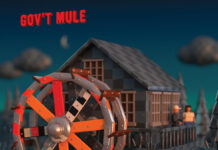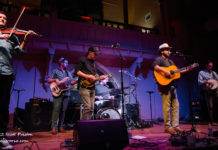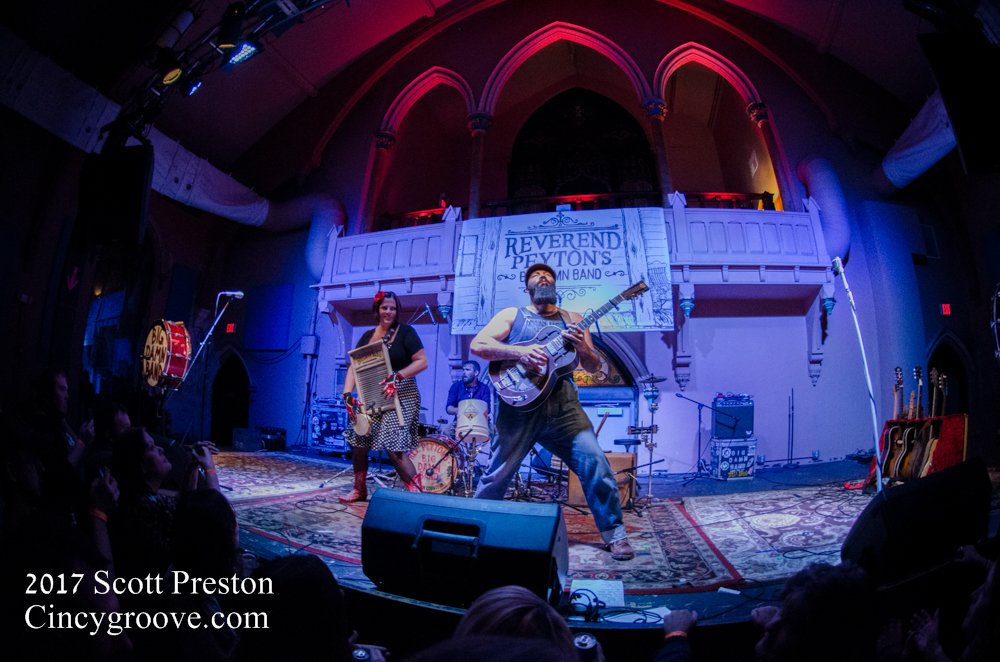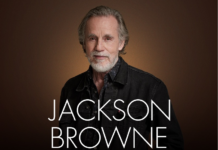 Billy Joe Shaver’s finest songs prowl (“Hard To Be an Outlaw”) and punch (“Music City USA”) with welterweight fury. Evidence: The legendary outlaw’s seamless Long in the Tooth. Shaver’s first studio album in six years showcases a singular songwriter in absolutely peak form as he unearths his trademark truths around every corner (“Last Call for Alcohol,” “The Git Go”). “This is the best album I’ve ever done,” he says. “It’s just dangerously good. I expect it to change things and turn things around the way Honky Tonk Heroes did.”
Billy Joe Shaver’s finest songs prowl (“Hard To Be an Outlaw”) and punch (“Music City USA”) with welterweight fury. Evidence: The legendary outlaw’s seamless Long in the Tooth. Shaver’s first studio album in six years showcases a singular songwriter in absolutely peak form as he unearths his trademark truths around every corner (“Last Call for Alcohol,” “The Git Go”). “This is the best album I’ve ever done,” he says. “It’s just dangerously good. I expect it to change things and turn things around the way Honky Tonk Heroes did.”
Long in the Tooth, set for August 5, 2014 release on Lightning Rod Records through Thirty Tigers, charts his journey as an unrepentant outlaw. Accordingly, Shaver delivers the classic country fans expect but also brings all new sonic tricks this time around. “Each song is different with different beats and different kinds of music,” he says. “I even have one rap song. The titles are all so catchy like ‘It’s Hard to Be an Outlaw’ and ‘The Git Go.’ Those are pretty hard to beat. Songwriting is gut wrenching, but if you dig down and write real honest you’ll find something real great. I believe everybody should write. It’s the cheapest psychiatrist there is and, God knows, I still need one.”
Long in the Tooth spotlights all the highs, lows and in-betweens from Shaver’s storied career, an evolving narrative never short on color. “The record’s about me,” says Shaver, who turns 75 years old in August. “I’ve written a lot of great songs and I’m still writing great songs, but I felt neglected. I have been, actually. The reluctance to play old people’s music is as bad as it was to play young people’s music. I think it should level out where everyone can hear good art, but it seems like radio doesn’t play older people’s music. Man, it’s like throwing out the Mona Lisa. I don’t understand, but I’m just so proud of Long in the Tooth. This record will be a gigantic step.”
Of course, Honky Tonk Heroes was the record that skyrocketed Shaver into public consciousness four decades ago. Waylon Jennings’ landmark album delivered Shaver-written classics practically every measure: “Old Five and Dimers Like Me,” “Willy the Wandering Gypsy and Me,” “Ride Me Down Easy,” the title track and the Top 10 hit “You Asked Me To.” In fact, 10 of the album’s 11 songs were written or co-written by Shaver. It established him as a singular songwriter, a man whose earthy poetry resonates across the board. He’s doubled down ever since.
No one sings Shaver’s songs like the man himself, but plenty have tried: Everyone from Johnny Cash (“I’m Just an Old Chunk of Coal”) and Tom T. Hall (“Willy the Wandering Gypsy and Me”) to the Allman Brothers (“Sweet Mama”) and Asleep at the Wheel (“Way Down Texas Way”) has cut his tunes. “That’s kind of like my trophies,” Shaver admits. “Instead of getting CMA Awards, that means a whole lot more to me. When you write songs, and you write good songs, people will always remember you. Words will always outlive us. And if your name is attached to those words, you’re gonna live forever.”
Shaver spins yarns linking sacred (“Jesus Christ, What a Man”) and secular (“That’s What She Said Last Night”) with a devil’s grin. High watermarks have become instant standards (“Georgia on a Fast Train”). “These days it seems that every young songwriter in Texas wants to grow up to be Billy Joe Shaver,” Kinky Friedman wrote recently. “Like the defenders of the Alamo, I predict that one day they’ll be naming schools after Billy Joe, the man who wrote the immortal lines: ‘I got a good Christian raisin’/And an eighth grade education/Ain’t no need in y’all treatin’ me this way.”
His most wistful (“Live Forever”) and weary (“Blood Is Thicker Than Water”) blur lines between life and art. In fact, Shaver, who lost parts of four fingers in an early sawmill accident, has lived through several tragedies that could serve as blueprints for teary country songs. Most notably, he endured the “cosmic misfortune” of his mother, first wife and only son (guitarist Eddy Shaver) dying within a year of one another. Life’s simply treated him hard. Shaver hasn’t aged gracefully, either. (Spin “Wacko from Waco” for his account of shooting a man in the face outside Papa Joe’s Texas Saloon in spring 2007.)
The Corsicana, Texas native’s Lone Star State roots run deep: His great-great-great grandfather, Revolutionary War veteran Evan Thomas Watson, was one of the founders of the Republic. Shaver was raised in hardscrabble circumstances by his grandmother, working on farms and selling newspapers on the street in his youth. He sang and made up songs “since I could talk,” and was inspired in his childhood to keep at it after sneaking out of home one night to catch a country music show where he heard Hank Williams early in his career.
He drew a connection between country and blues from an uncle’s record collection and the neighboring African-American farm workers’ music. “Country music is really close to being the blues, and rock ’n’ roll ain’t nothing but the blues with a beat. That’s about it,” he says. Shaver was given a Gene Autry guitar by his grandmother at age 11 and began playing until his stepfather gave it away a few years later as payment for yard work. Following a brief stint in the Navy at age 16, a stab at professional rodeo, and the aforementioned incident losing parts of his fingers, Shaver took up playing guitar again and devoted himself to songwriting.
In 1993, he broke through with new generations and broader audiences as the currently booming Americana and Texas roots music and singer-songwriter scenes were gathering steam with the acclaimed Tramp On Your Street, united with his late guitar-playing son Eddy as simply Shaver. He has since issued 11 more independent albums, was honored with the first Americana Music Award for Lifetime Achievement in Songwriting in 2002, and inducted into the Nashville Songwriters Hall of Fame in 2004.
As his well deserved public recognition came in the 1990s, Shaver was cast by his friend and fan Robert Duvall in his acclaimed 1996 film The Apostle, and has since played parts in three other theatrical and TV movies. He was the subject of a 2004 documentary produced by Duvall, A Portrait of Billy Joe, and published his autobiography, Honky Tonk Hero, the following year. He also sings the themes to the Adult Swim television show Squidbillies, and “Live Forever” was included in the award-winning hit movie Crazy Heart as its end-credit song.
With these accomplishments behind him, Shaver has been thinking his creative well finally dried up. After all, he hasn’t released an album with new songs in six years. Thankfully, he was wrong. Credit East Nashville’s favorite son with lighting the fire. “I didn’t think I had another hope in the world of doing another studio album,” Shaver says. “Then Todd Snider encouraged me to come up to Nashville and I listened. I knew if I didn’t come out with new songs, it wouldn’t be right. I’ve promised hundreds of critics that I would. So, I just buckled down and got the new songs together. Sure enough, it turned out great.”
# # #
Rolling Stone premiered the Billy Joe Shaver and Willie Nelson duet, “Hard to Be an Outlaw” here.


